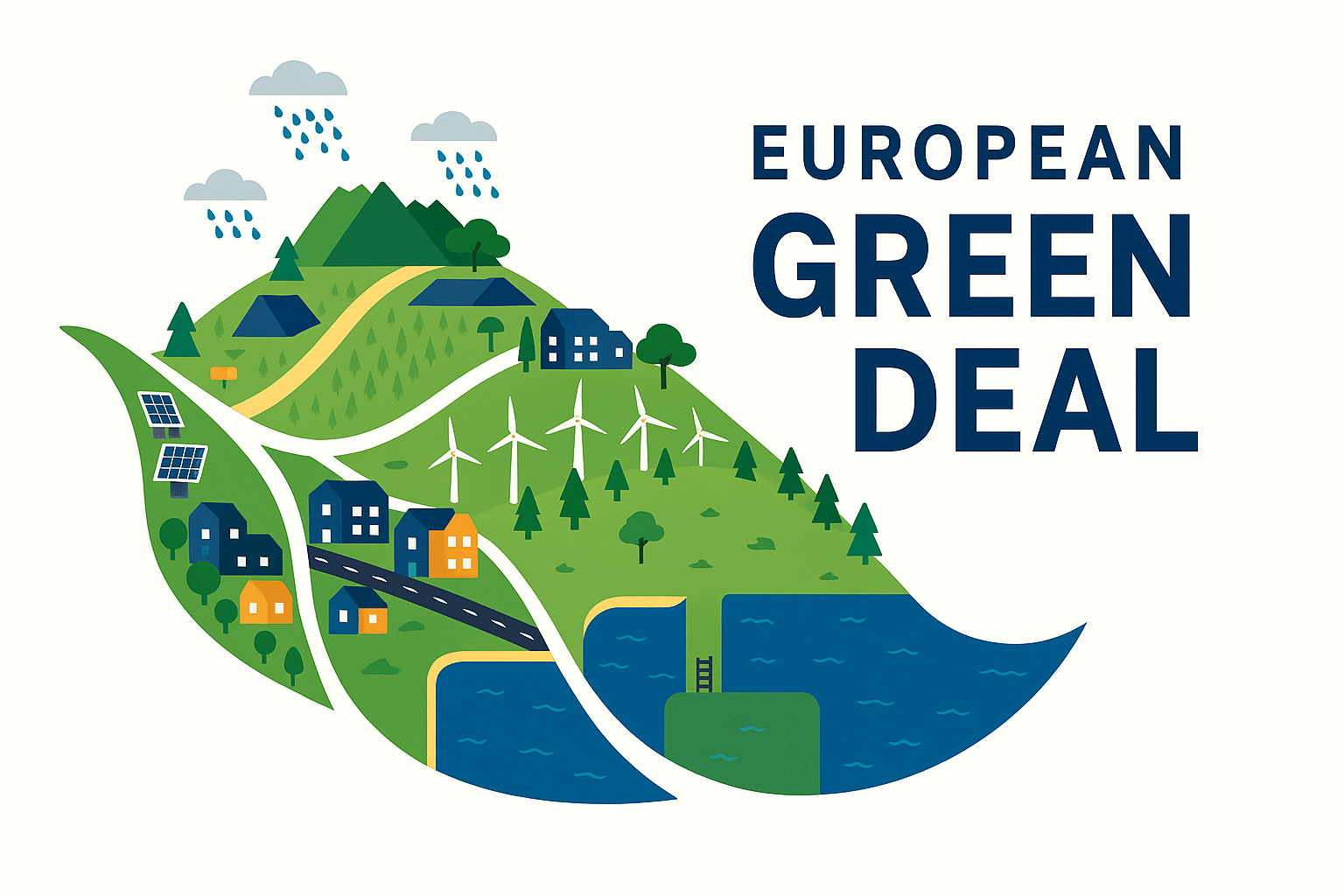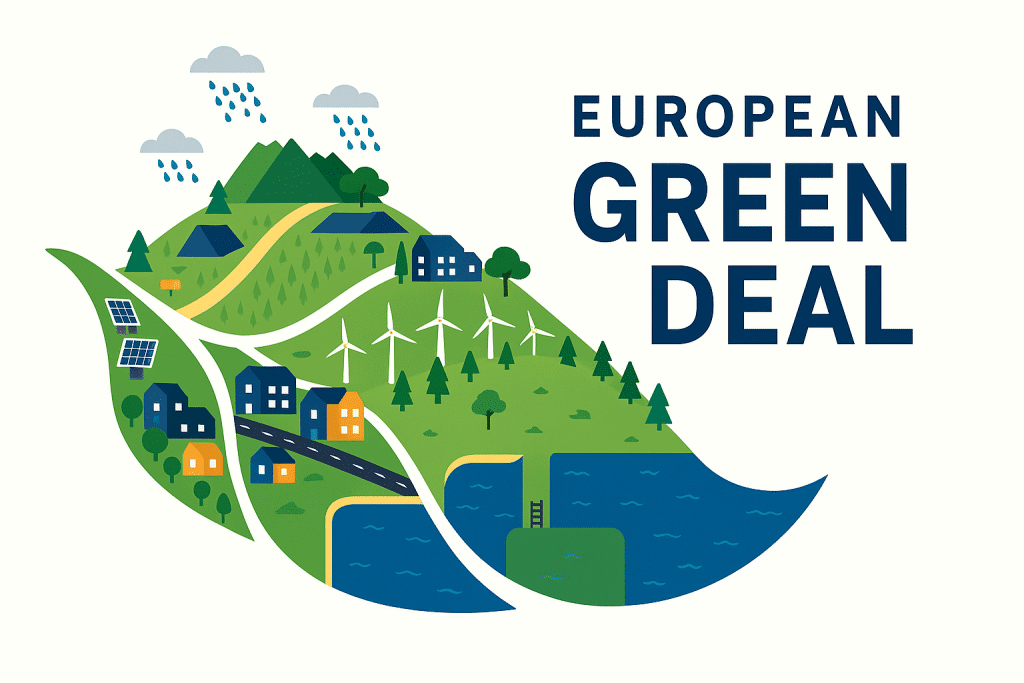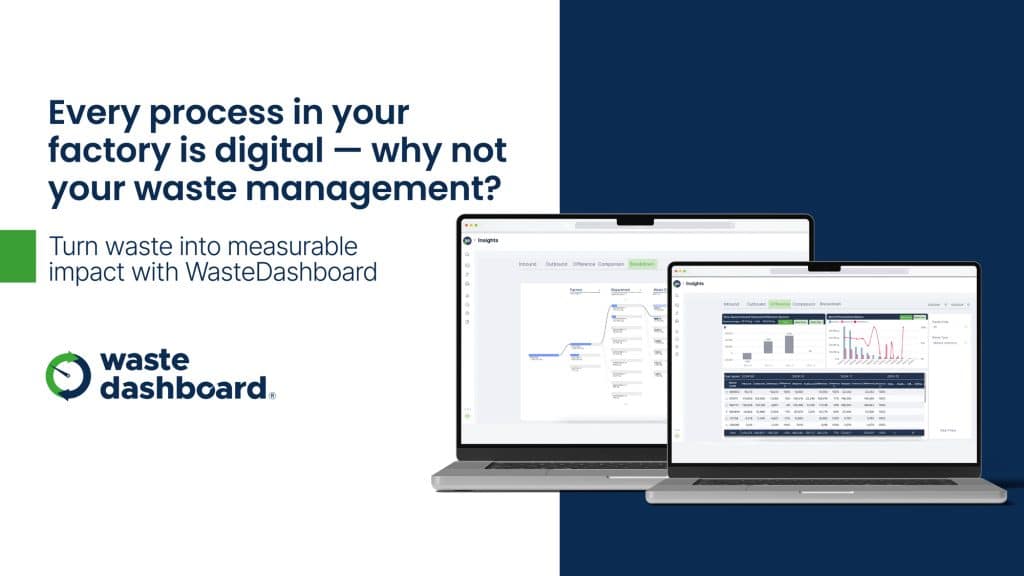Waste & material traceability solution for sustainable facilities

The European Union has fundamentally transformed the business landscape with its comprehensive sustainability regulations. For companies operating within or trading with the EU market, compliance with environmental standards is no longer optional—it’s a business imperative that directly impacts operations, reporting, and competitive positioning.

Three major EU initiatives are at the forefront of this transformation:
Since 2015, the EU Circular Economy Package has been pushing businesses toward waste reduction and resource efficiency. The plan’s ambitious 2030 targets include:
• Reducing overall waste generation across industries
• Increasing recycling rates of recoverable materials
• Improving energy efficiency in production cycles
• Encouraging reusable product design
While designed for EU member states, these regulations significantly impact trading partners, including Turkey, affecting sectors from automotive to retail.
The EU’s commitment to carbon neutrality by 2050 translates into immediate operational changes for businesses. Companies now face stricter waste management obligations and must demonstrate progress in:
• Reducing industrial and municipal waste output
• Expanding use of recycled materials
• Implementing environmentally safe disposal methods
• Investing in circular technologies

The Corporate Sustainability Reporting Directive (CSRD) represents a paradigm shift toward transparency. Large companies with 500+ employees must now disclose:
• Detailed waste quantities and recycling rates
• Operational emissions data
• Concrete actions for waste and emissions reduction
• Measurable sustainability targets and progress
This directive transforms sustainability from a voluntary initiative into a mandatory reporting requirement, creating new challenges for data collection and verification.
Rising compliance requirements have made manual waste tracking and reporting insufficient. Businesses need robust digital infrastructure to meet regulatory demands while maintaining operational efficiency.
Evreka’s digital waste management platform addresses these challenges by enabling companies to:
• Digitize waste operations across multiple facilities
• Track material flows in real-time
• Generate audit-ready sustainability reports
• Identify cost-saving opportunities through waste reduction
• Support carbon-neutral strategies with accurate data
For detailed insights into navigating these regulations, explore our comprehensive guide: EU Policies on Sustainability and the Circular Economy.

EU sustainability regulations aren’t just compliance obligations—they’re opportunities for innovation and cost reduction. Companies that proactively adopt circular economy principles and digital waste management solutions position themselves for long-term success in an increasingly regulated market.
The businesses that thrive will be those that view these regulations as catalysts for operational excellence rather than mere compliance burdens.
Don’t let regulatory complexity slow down your business growth. Evreka’s digital waste management solutions help companies navigate EU sustainability requirements while unlocking operational efficiencies.
Request a demo today to see how WasteDashboard can transform your compliance strategy into a competitive advantage.